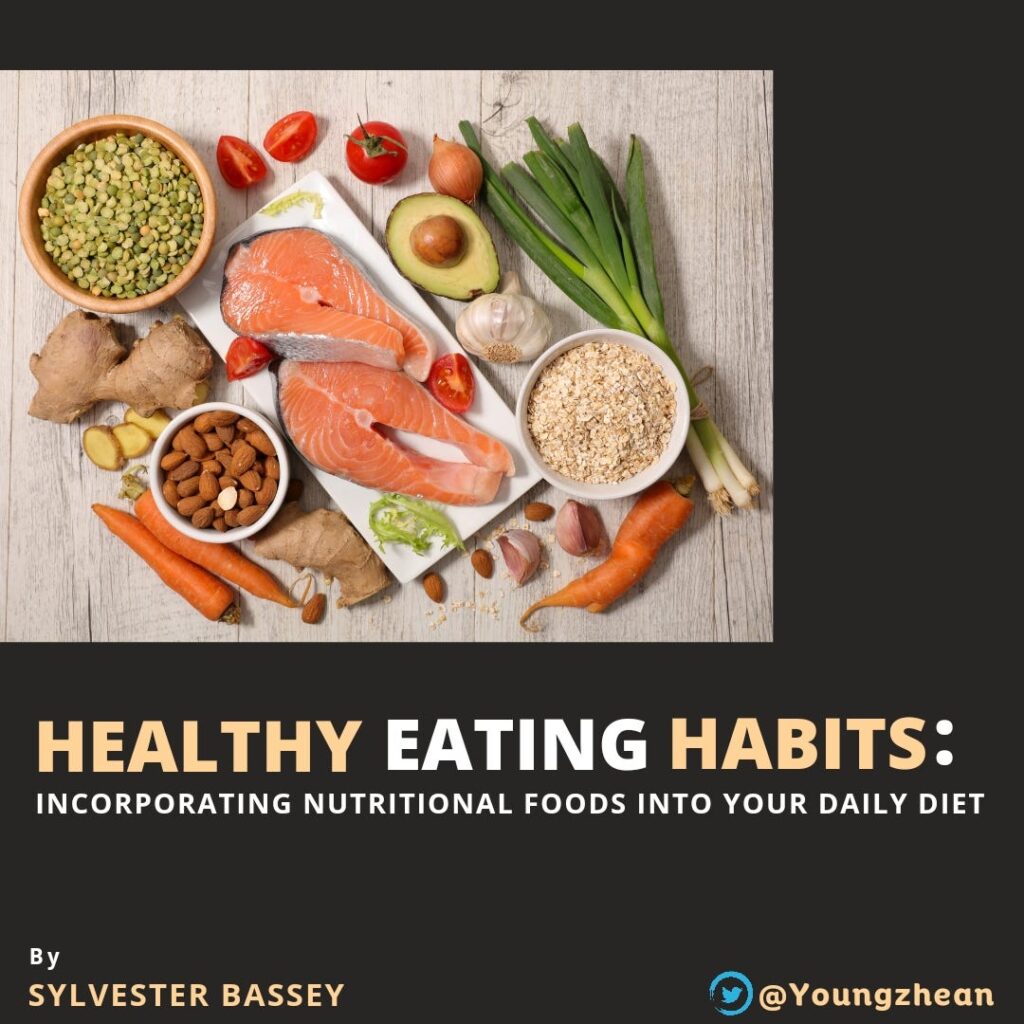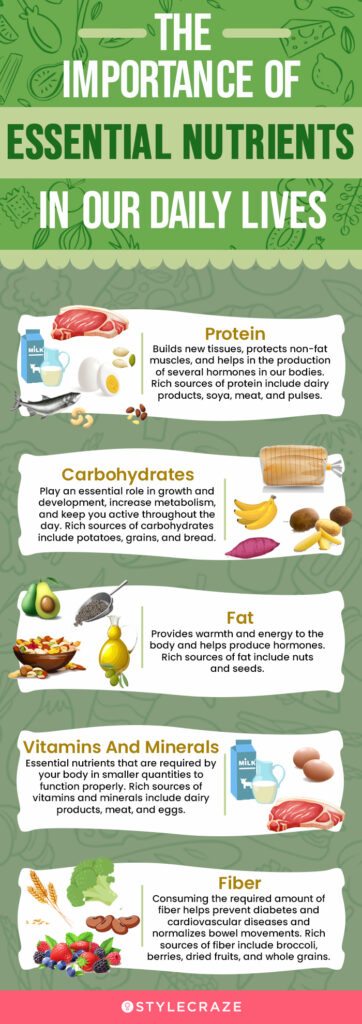Eating healthy has numerous benefits that positively impact our overall well-being. When we incorporate nutritious foods into our daily diet, we provide our bodies with essential nutrients and energy to function at their best. Not only does it boost our immunity and support weight management, but it also enhances our mood, improves our cognitive abilities, and reduces the risk of chronic diseases. By making conscious choices to include healthy foods in our meals, we can enjoy a healthier and more vibrant life.

1. Physical Health Benefits
Incorporating healthy foods into your diet offers numerous benefits for your physical health. Let’s explore some of these benefits in detail.
1.1 Weight Management
Maintaining a healthy weight is not just about appearance, it is essential for overall well-being. By incorporating healthy foods into your diet, you can effectively manage your weight. These foods are typically low in calories and high in nutrients, helping you feel fuller for longer periods and reducing the likelihood of overeating.
1.2 Reduced Risk of Chronic Diseases
A diet rich in healthy foods can significantly lower the risk of chronic diseases such as heart disease, diabetes, and certain cancers. Fruits, vegetables, whole grains, and lean proteins are all known to be beneficial in preventing these conditions. By consuming a variety of these foods, you provide your body with the necessary nutrients and antioxidants to combat the development of these diseases.
1.3 Increased Energy Levels
Unhealthy eating habits often lead to energy slumps and fatigue. However, incorporating healthy foods into your diet can provide a steady source of energy throughout the day. Nutrient-dense foods, such as fruits, vegetables, and whole grains, provide the necessary carbohydrates, vitamins, and minerals to fuel your body and keep you energized.
1.4 Stronger Immune System
A healthy diet plays a crucial role in boosting your immune system. Foods rich in vitamins, minerals, and antioxidants strengthen your body’s defense mechanisms, making you less susceptible to common illnesses such as the flu or colds. By incorporating foods like citrus fruits, berries, and leafy greens into your diet, you can give your immune system the support it needs to function optimally.
1.5 Improved Digestive Health
Proper digestion is vital for overall health. Healthy foods, particularly those high in dietary fiber, promote regular bowel movements and maintain a healthy gut. Consuming foods like whole grains, fruits, and vegetables can prevent constipation, bloating, and other digestive disorders. These foods also support the growth of beneficial gut bacteria, leading to a healthier digestive system.
1.6 Better Sleep Quality
What you eat can impact the quality of your sleep. Certain foods, such as those high in carbohydrates and tryptophan (an amino acid), can enhance the production of sleep-regulating hormones like serotonin and melatonin. By incorporating healthy foods into your dinner, such as whole grains, lean proteins, and leafy greens, you can promote better sleep quality and wake up feeling refreshed.
2. Mental Health Benefits
In addition to physical health advantages, incorporating healthy foods into your diet also positively impacts your mental well-being. Let’s explore how these foods benefit your mental health.
2.1 Improved Mood
Healthy foods have been linked to improved mood and overall mental well-being. Nutrient-rich foods, such as fruits, vegetables, and whole grains, provide essential vitamins and minerals that support brain health. Additionally, these foods can help stabilize blood sugar levels, reducing mood swings and promoting a more positive outlook.
2.2 Reduced Stress and Anxiety
Stress and anxiety are common challenges in today’s fast-paced world. However, certain healthy foods can help reduce these symptoms. Foods rich in omega-3 fatty acids, such as fatty fish and nuts, have been shown to lower cortisol levels, the stress hormone. Incorporating these foods into your diet can help promote a calmer and more relaxed state of mind.
2.3 Enhanced Cognitive Functioning
Healthy foods play a crucial role in optimizing cognitive function. Omega-3 fatty acids, found in fish, walnuts, and flaxseeds, support brain health and contribute to improved memory and concentration. Furthermore, antioxidants found in fruits and vegetables can protect brain cells from oxidative stress and age-related decline.
2.4 Increased Productivity
Good nutrition is essential for optimal productivity and focus. By incorporating healthy foods into your diet, you provide your brain with the necessary nutrients to function at its best. Foods like whole grains, lean proteins, and fruits provide a steady release of energy, enabling you to stay focused and productive throughout the day.
2.5 Better Management of Mental Health Disorders
Incorporating healthy foods into your diet can be particularly beneficial for individuals with mental health disorders. Research suggests that certain nutrients, such as omega-3 fatty acids and B vitamins, can help manage symptoms of depression and anxiety. Including foods like fatty fish, leafy greens, and whole grains in your diet can provide these essential nutrients and support your mental well-being.
2.6 Enhanced Overall Well-being
By nourishing your body with healthy foods, you are taking significant steps towards enhancing your overall well-being. The physical health benefits of a healthy diet, combined with the mental health benefits, contribute to a sense of vitality, balance, and contentment. When you feel good physically and mentally, your overall quality of life improves.

3. Nutrient Benefits
One of the key advantages of incorporating healthy foods into your diet is the abundance of essential nutrients they provide. Let’s explore some of these nutrient benefits in detail.
3.1 Rich Source of Vitamins and Minerals
Healthy foods, particularly fruits and vegetables, are packed with a variety of vitamins and minerals essential for optimal health. These nutrients play vital roles in various bodily functions, from supporting the immune system to promoting healthy bone growth. By incorporating a wide range of fruits, vegetables, and whole grains into your diet, you can ensure that your body receives these essential nutrients.
3.2 High in Antioxidants
Antioxidants are powerful compounds that protect the body against harmful free radicals, which can lead to chronic diseases and accelerate the aging process. Healthy foods such as berries, leafy greens, and nuts are rich in antioxidants, which help reduce inflammation, support cardiovascular health, and promote overall well-being.
3.3 Essential Fatty Acids
Certain healthy foods, particularly fatty fish, nuts, and seeds, are excellent sources of essential fatty acids, including omega-3 and omega-6 fatty acids. These fats are crucial for brain health, heart health, and reducing inflammation in the body.
3.4 Dietary Fiber
Fiber is a type of carbohydrate that the body cannot digest. However, it plays a vital role in maintaining a healthy digestive system and promoting regular bowel movements. Healthy foods like whole grains, fruits, and vegetables are excellent sources of dietary fiber, which can help prevent constipation, control blood sugar levels, and promote a feeling of fullness.
3.5 Complete Proteins
Proteins are the building blocks of the body and are essential for muscle growth and repair. Incorporating healthy foods that provide complete proteins, such as lean meats, dairy products, and legumes, ensures that your body receives all the necessary amino acids it needs to function optimally.
3.6 Bioactive Compounds
Healthy foods contain a wide variety of bioactive compounds, including phytochemicals and flavonoids. These compounds have been shown to have numerous health benefits, including anti-inflammatory, antioxidant, and anti-cancer properties. By incorporating a diverse range of fruits, vegetables, and herbs into your diet, you can access these bioactive compounds and support your overall health.
4. Weight Management and Long-term Health
Incorporating healthy foods into your diet plays a significant role in maintaining a healthy weight and promoting long-term health. Let’s explore how these foods contribute to weight management and overall well-being.
4.1 Promotes Healthy Weight Loss
Healthy foods are typically low in calories and high in nutrients, making them an excellent choice for individuals looking to lose weight. By incorporating these foods into your diet, you can create a calorie deficit while still nourishing your body with essential nutrients. This promotes sustainable weight loss and prevents nutrient deficiencies common in restrictive diets.
4.2 Sustained Weight Maintenance
Once you reach your desired weight, incorporating healthy foods into your diet is crucial for sustaining your weight loss and preventing weight regain. These foods provide the necessary nutrients to support your body’s functions while keeping you satisfied and less likely to overeat.
4.3 Reduces Risk of Obesity
Healthy foods can significantly reduce the risk of obesity, a condition associated with numerous health problems. By choosing nutrient-dense foods over calorie-dense, processed foods, you can maintain a healthy weight and decrease the likelihood of developing obesity-related diseases such as diabetes, heart disease, and certain cancers.
4.4 Decreases Risk of Metabolic Disorders
Metabolic disorders such as metabolic syndrome and insulin resistance are often the result of an unhealthy diet and sedentary lifestyle. By incorporating healthy foods into your diet, you can reduce the risk of these disorders. Foods that are low in added sugars, unhealthy fats, and refined carbohydrates promote stable blood sugar levels and support metabolic health.
4.5 Enhances Cardiovascular Health
Incorporating healthy foods into your diet is one of the most effective ways to improve cardiovascular health. Foods such as fruits, vegetables, whole grains, and lean proteins contribute to healthy cholesterol levels, blood pressure regulation, and overall heart health. By consuming these foods regularly, you can significantly reduce the risk of heart disease and stroke.
4.6 Prevents Type 2 Diabetes
A healthy diet plays a crucial role in preventing and managing type 2 diabetes. Foods that are high in fiber, low in added sugars, and rich in nutrients can help regulate blood sugar levels and improve insulin sensitivity. By incorporating healthy foods into your diet, you can effectively reduce the risk of developing this chronic condition.

5. Increased Energy and Vitality
Incorporating healthy foods into your diet can significantly enhance your energy levels and overall vitality. Let’s explore how these foods contribute to increased energy and improved well-being.
5.1 Optimal Nutrient Absorption
Healthy foods are rich in essential nutrients that your body requires to produce energy. By incorporating a varied diet of fruits, vegetables, whole grains, and lean proteins, you ensure that your body efficiently absorbs and utilizes these nutrients, providing you with a steady source of energy throughout the day.
5.2 Regulation of Blood Sugar Levels
Unhealthy eating habits, such as consuming excessive amounts of sugary foods, can lead to blood sugar spikes followed by crashes, resulting in fatigue and low energy levels. By incorporating healthy foods that are low in added sugars and high in fiber, you can regulate your blood sugar levels, promoting stable and sustained energy.
5.3 Improved Oxygen Delivery
Certain healthy foods, particularly those rich in iron, contribute to improved oxygen delivery throughout the body. Iron is essential for the production of red blood cells, which carry oxygen to your muscles and organs. By incorporating iron-rich foods such as lean meats, legumes, and leafy greens, you can enhance your energy levels and combat fatigue.
5.4 Enhanced Endurance and Stamina
A well-balanced diet, consisting of healthy foods, provides the necessary nutrients to support physical endurance and stamina. Whole grains, lean proteins, and fruits are all sources of complex carbohydrates, which are the body’s preferred fuel source during physical activity. By consuming these foods, you can optimize your energy levels and perform at your best.
5.5 Boosted Brain Function
Healthy foods not only enhance physical energy but also boost brain function. Nutrient-dense foods, such as fatty fish, nuts, and berries, provide essential fatty acids, antioxidants, and other nutrients that support cognitive health. By incorporating these foods into your diet, you can improve focus, concentration, and mental clarity.
6. Stronger Immune System
Incorporating healthy foods into your diet plays a vital role in strengthening your immune system, defending your body against illnesses, and promoting overall well-being. Let’s explore how these foods contribute to a stronger immune system.
6.1 Increased Disease Resistance
Healthy foods, particularly those rich in vitamins A, C, and E, help strengthen your immune system and increase your resistance to diseases. Fruits like oranges, strawberries, and kiwis, as well as vegetables like bell peppers and broccoli, are excellent sources of these immune-boosting vitamins. By incorporating these foods into your diet, you provide your body with the necessary tools to fight off infections and illnesses.
6.2 Quicker Recovery from Illness
Incorporating healthy foods into your diet can help speed up your recovery from illnesses and support your body’s healing process. Nutrient-rich foods provide the necessary vitamins, minerals, and antioxidants needed to repair damaged tissues, combat inflammation, and support the immune response. By consuming a balanced diet, you can give your body the resources it needs to bounce back more quickly.
6.3 Reduced Risk of Infections
A strong immune system is essential in warding off infections. Healthy foods play a crucial role in boosting immunity and reducing the risk of infections. Incorporating foods high in immune-boosting nutrients, such as citrus fruits, berries, garlic, and yogurt, can strengthen your body’s defense mechanisms and help fight off harmful pathogens.
6.4 Enhanced Antibacterial and Antiviral Properties
Certain healthy foods, such as garlic, ginger, and honey, have natural antibacterial and antiviral properties. These foods contain compounds that inhibit the growth of harmful bacteria and viruses in the body. By incorporating these foods into your diet, you can provide an additional layer of protection against infections.
6.5 Improved Wound Healing
Nutrition plays a critical role in wound healing. Healthy foods provide the necessary nutrients, such as vitamins A, C, and E, zinc, and protein, to support the healing process. By incorporating foods like fruits, vegetables, lean meats, and legumes, you can enhance your body’s ability to recover from injuries, surgeries, and other wounds.

7. Digestive Health and Regularity
Incorporating healthy foods into your diet is essential for maintaining a healthy digestive system and promoting regular bowel movements. Let’s explore how these foods contribute to digestive health.
7.1 Promotes Healthy Gut Flora
Healthy foods provide prebiotics and probiotics that support the growth of beneficial gut bacteria. Prebiotics, found in foods like bananas, onions, and whole grains, serve as food for these beneficial bacteria. Probiotics, on the other hand, are live bacteria found in fermented foods like yogurt, sauerkraut, and kimchi, which can help maintain a healthy balance of gut flora.
7.2 Improved Bowel Movements
A diet rich in healthy foods, especially those high in dietary fiber, promotes regular bowel movements and prevents constipation. Fiber adds bulk to the stool and softens it, making it easier to pass. Fruits, vegetables, whole grains, and legumes are all excellent sources of dietary fiber, ensuring proper digestion and regularity.
7.3 Prevention of Digestive Disorders
Incorporating healthy foods into your diet is one of the most effective ways to prevent digestive disorders such as gastritis, acid reflux, and irritable bowel syndrome (IBS). Processed foods, high in unhealthy fats and artificial additives, can irritate the digestive system and lead to these conditions. By focusing on whole, unprocessed foods, you can promote a healthy digestive system and reduce the risk of these disorders.
7.4 Reduced Risk of Colon Cancer
A diet high in healthy foods, especially those rich in fiber, can significantly reduce the risk of colon cancer. Fiber helps maintain regular bowel movements, preventing the buildup of harmful substances in the colon. Additionally, antioxidants found in fruits and vegetables can help protect against cellular damage and the development of cancerous cells.
7.5 Alleviation of Constipation and Bloating
Incorporating healthy foods into your diet can alleviate common digestive issues such as constipation and bloating. Foods high in dietary fiber, such as whole grains, fruits, and vegetables, promote regular bowel movements and prevent constipation. Additionally, certain foods like ginger and peppermint can ease bloating and discomfort.
8. Mental Well-being and Cognitive Function
Healthy foods play a vital role in supporting mental well-being and cognitive function. Let’s explore how these foods contribute to brain health.
8.1 Supports Brain Development
The brain undergoes significant development throughout life. Healthy foods, particularly during infancy and childhood, support optimal brain development. Nutrients such as omega-3 fatty acids, choline, iron, and B vitamins are essential for brain growth and function. By incorporating foods like fatty fish, eggs, leafy greens, and whole grains, you can support healthy brain development in individuals of all ages.
8.2 Enhances Memory and Focus
Certain healthy foods are known to enhance memory and cognitive function. Antioxidant-rich fruits like blueberries, avocados, and leafy greens have been shown to improve memory, attention span, and overall brain performance. Additionally, omega-3 fatty acids found in fatty fish and nuts can support brain health and boost cognitive function.
8.3 Reduces Brain Fog
Brain fog, characterized by mental confusion and difficulty focusing, can significantly impact daily life. Incorporating healthy foods into your diet can help alleviate brain fog and promote mental clarity. Foods rich in antioxidants, magnesium, and B vitamins provide nourishment to the brain, allowing for improved focus, concentration, and memory recall.
8.4 Protects Against Age-related Cognitive Decline
As we age, cognitive decline becomes more prevalent. However, incorporating healthy foods into your diet can help protect against age-related cognitive decline and neurodegenerative diseases such as Alzheimer’s and dementia. Antioxidants, omega-3 fatty acids, and certain vitamins can support brain health and protect against cellular damage.
8.5 Promotes Neurotransmitter Balance
Healthy foods contain essential amino acids that support the production of neurotransmitters, which are crucial for optimal brain function. Incorporating foods rich in tryptophan, such as turkey, eggs, and nuts, can promote the production of serotonin, a neurotransmitter linked to mood regulation and overall well-being.

9. Emotional Stability and Stress Reduction
Incorporating healthy foods into your diet can greatly contribute to emotional stability and the reduction of stress. Let’s explore how these foods positively impact your mental and emotional well-being.
9.1 Increased Serotonin Production
Serotonin, often referred to as the “feel-good” neurotransmitter, plays a crucial role in regulating mood and promoting emotional stability. Healthy foods, particularly those high in tryptophan, can increase serotonin production in the brain. Foods like salmon, eggs, and dark chocolate are rich in tryptophan and can help boost serotonin levels naturally.
9.2 Regulation of Stress Hormones
Stress can have a significant impact on mental health and overall well-being. Incorporating healthy foods into your diet can help regulate stress hormones, such as cortisol, and promote a calmer state of mind. Foods rich in antioxidants, omega-3 fatty acids, and magnesium, such as leafy greens, fatty fish, and dark chocolate, can support the body’s stress response and reduce anxiety.
9.3 Mood Stabilization
A diet high in healthy foods can help stabilize mood and reduce mood swings. Foods rich in B vitamins, such as leafy greens, whole grains, and legumes, are essential for optimal brain function and the production of neurotransmitters involved in mood regulation. By incorporating these foods into your diet, you can promote emotional stability and well-being.
9.4 Improved Coping Mechanisms
Healthy eating habits contribute to enhanced coping mechanisms when faced with stressors and challenges in life. Consuming nutrient-dense foods provides the necessary fuel for your brain and body to effectively respond to stress. By incorporating healthy foods into your diet, you ensure that your body has the resources it needs to handle stress in a more resilient manner.
9.5 Reduced Risk of Depression and Anxiety
Research suggests a link between poor dietary habits and an increased risk of depression and anxiety. In contrast, incorporating healthy foods into your diet can reduce the risk of these mental health disorders. Nutrient-rich foods, particularly those high in omega-3 fatty acids, B vitamins, and antioxidants, support brain health and the production of neurotransmitters associated with mood regulation.
10. Overall Well-being and Quality of Life
Incorporating healthy foods into your diet contributes to an overall sense of well-being and a higher quality of life. Let’s explore how these foods enhance your vitality and contentment.
10.1 Enhanced Vitality and Longevity
A diet rich in healthy foods promotes increased vitality and longevity. The combination of physical health benefits, mental well-being, and disease prevention significantly impacts your overall vitality and energy levels. By nourishing your body with nutrient-dense foods, you are providing the necessary resources for a vibrant and fulfilling life.
10.2 Improved Physical Appearance
Your physical appearance often reflects your inner health. Healthy foods, particularly those rich in antioxidants and essential nutrients, promote healthy skin, hair, and nails. By incorporating foods such as berries, fish, avocados, and leafy greens into your diet, you can achieve a natural glow and enhance your physical appearance.
10.3 Higher Levels of Self-confidence
Feeling good physically and mentally can significantly contribute to higher levels of self-confidence. When you nourish your body with healthy foods, you feel more energized, have better cognitive function, and maintain a healthy weight. These factors, combined with overall well-being, boost self-confidence and positively impact various aspects of your life.
10.4 Better Quality of Sleep
Healthy eating habits can greatly improve the quality of your sleep. Certain foods, such as those high in tryptophan, promote the production of sleep-regulating hormones, leading to more restful sleep. Additionally, avoiding caffeine and heavy meals close to bedtime can contribute to a better night’s sleep.
10.5 Reduced Healthcare Costs
Incorporating healthy foods into your diet can lead to financial savings by reducing healthcare costs. By prioritizing your health through a nutrient-rich diet, you are less likely to develop chronic diseases, which can incur substantial medical expenses over time. Investing in your health through healthy eating is a proactive approach that can save you money in the long run.
Incorporating healthy foods into your diet offers numerous benefits for both your physical and mental health. From weight management and disease prevention to improved cognitive function and emotional well-being, the advantages are extensive. By making conscious choices to include nutrient-dense foods in your meals, you can enhance your overall well-being and enjoy a higher quality of life. Remember, small changes in your diet can have a big impact on your health, so start incorporating these healthy foods today for a healthier tomorrow.


